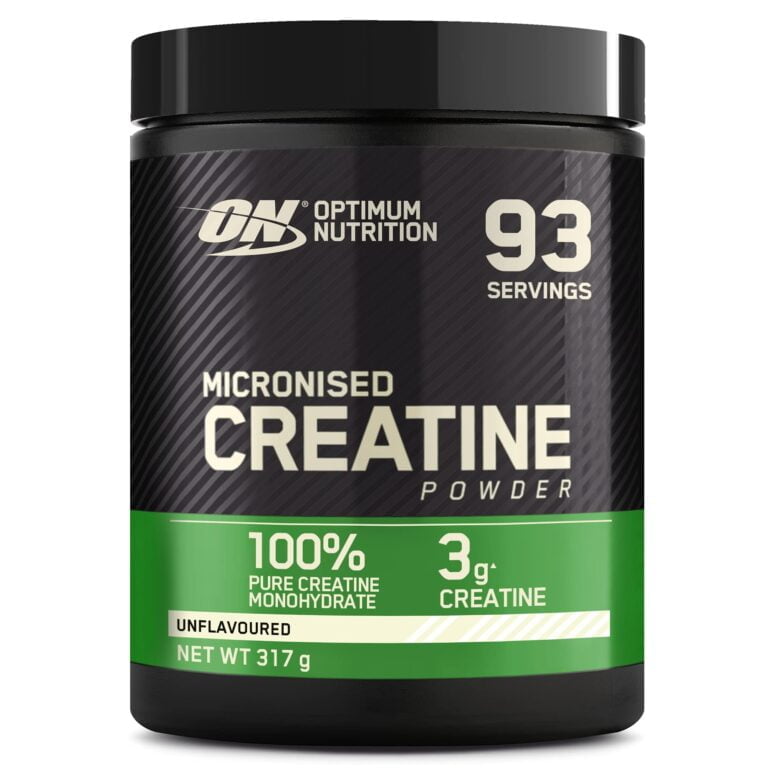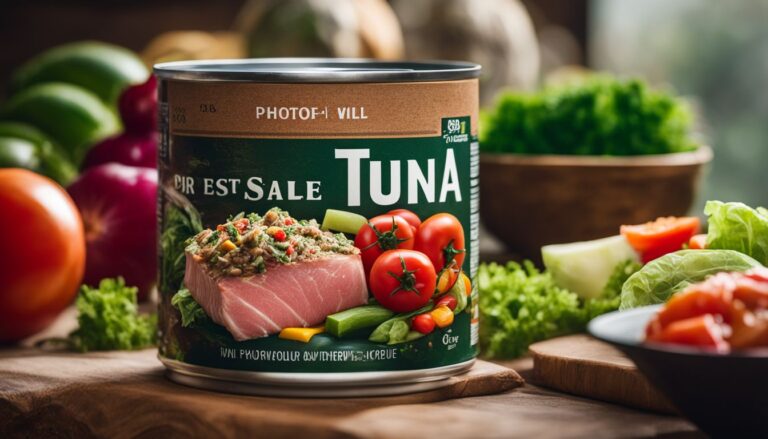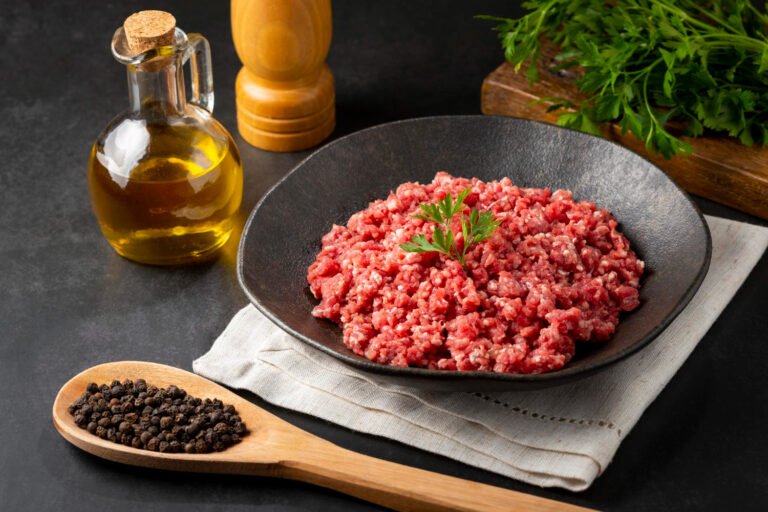Salmon Nutrition Facts Exposed: Discover Why It’s a Superfood Worth Adding to Your Diet
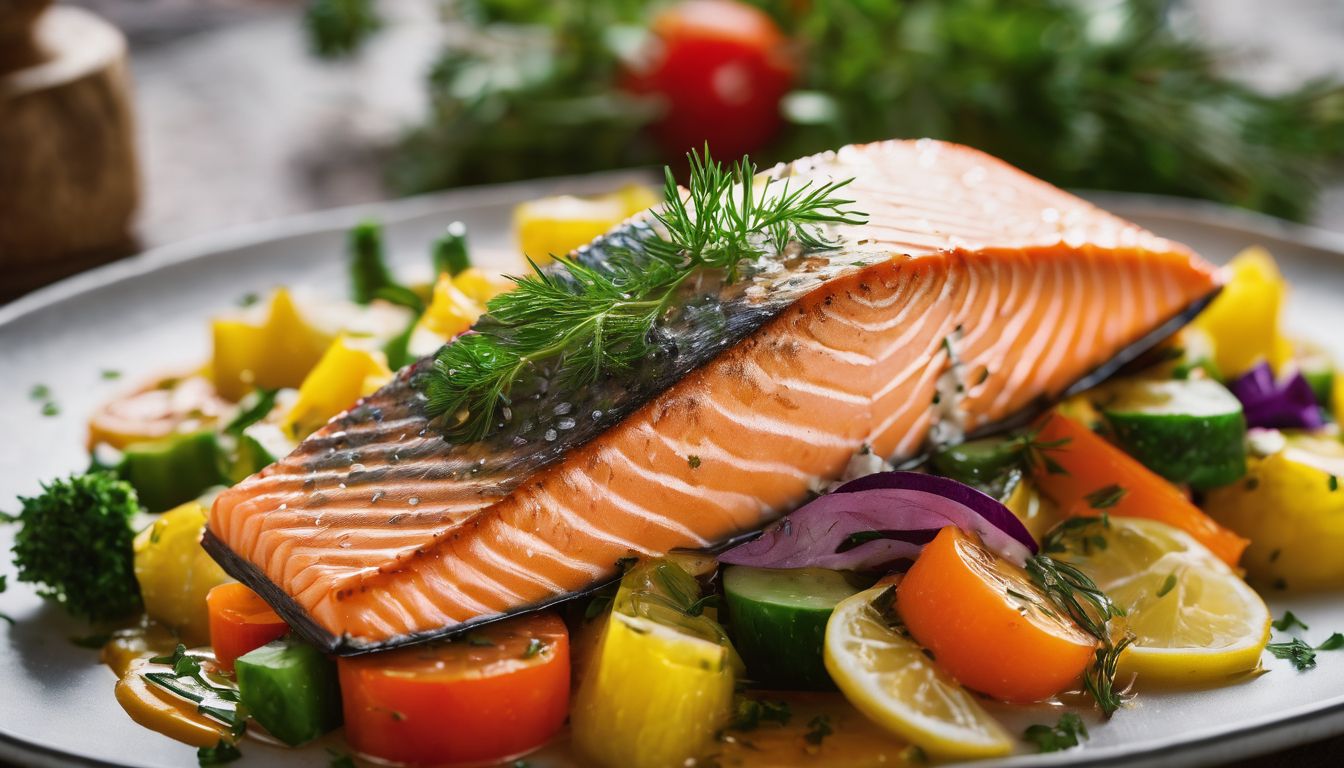
Are you constantly puzzling over what to eat for optimal health? One answer could be right under your nose – or in this case, on your plate: salmon. This nutrition powerhouse is packed with everything from protein and omega-3 fatty acids, to a range of essential vitamins.
By exploring the rich nutrient profile of salmon and its numerous health benefits, we aim to show you why this fish deserves key place in your diet. Stay tuned as we dive deep into the world of salmon!
Key Takeaways
- Salmon is a nutritional powerhouse packed with protein, omega – 3 fatty acids, B vitamins, potassium, selenium, and astaxanthin.
- Regularly consuming salmon can reduce the risk of heart disease, aid in weight management, prevent inflammation, protect brain health, improve mental well-being, and support bone health.
- Incorporating more salmon into your diet can be done by trying different cooking methods like grilling or baking and exploring various delicious recipes. However, it’s important to be mindful of potential health risks associated with mercury levels in certain types of salmon.
Salmon Nutrition Facts
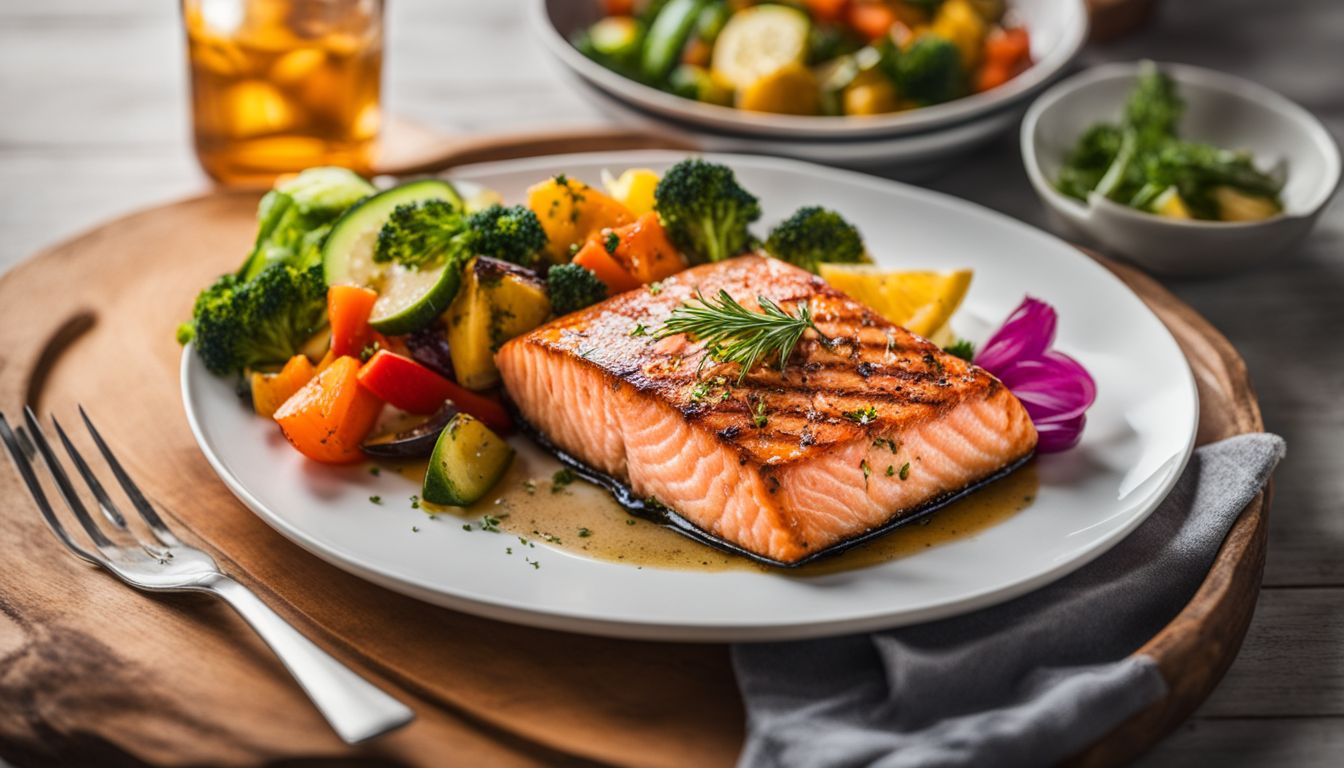
Salmon is not only delicious, but it also packs a nutritional punch. It is high in protein, rich in omega-3 fatty acids, and a good source of B vitamins. Additionally, it’s high in potassium and contains selenium and astaxanthin.
High in protein
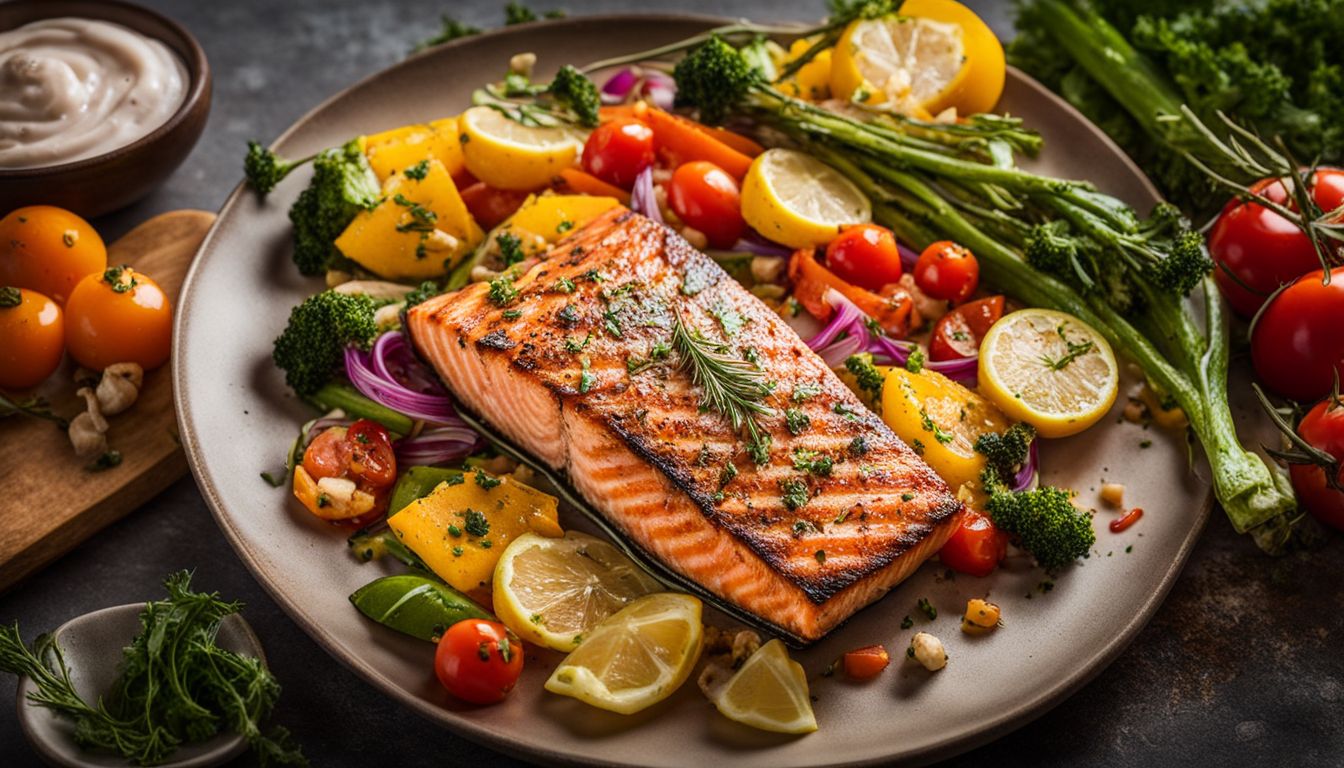
Salmon earns high marks as an excellent source of protein. With every 3-ounce serving, you consume about 23 grams of this vital nutrient. Protein plays a crucial role in the body, helping to build and repair tissues.
It’s fundamental for bones, muscles, cartilage, skin, blood production and enzymatic reactions. Salmon’s high-protein content makes it a favorite among fitness enthusiasts who aim to meet their daily protein intake for muscle building and recovery after workouts.
Additionally, consuming high amounts of protein from salmon can contribute significantly towards weight loss goals by providing positivity satiating meals with less calories.
Rich in omega-3 fatty acids
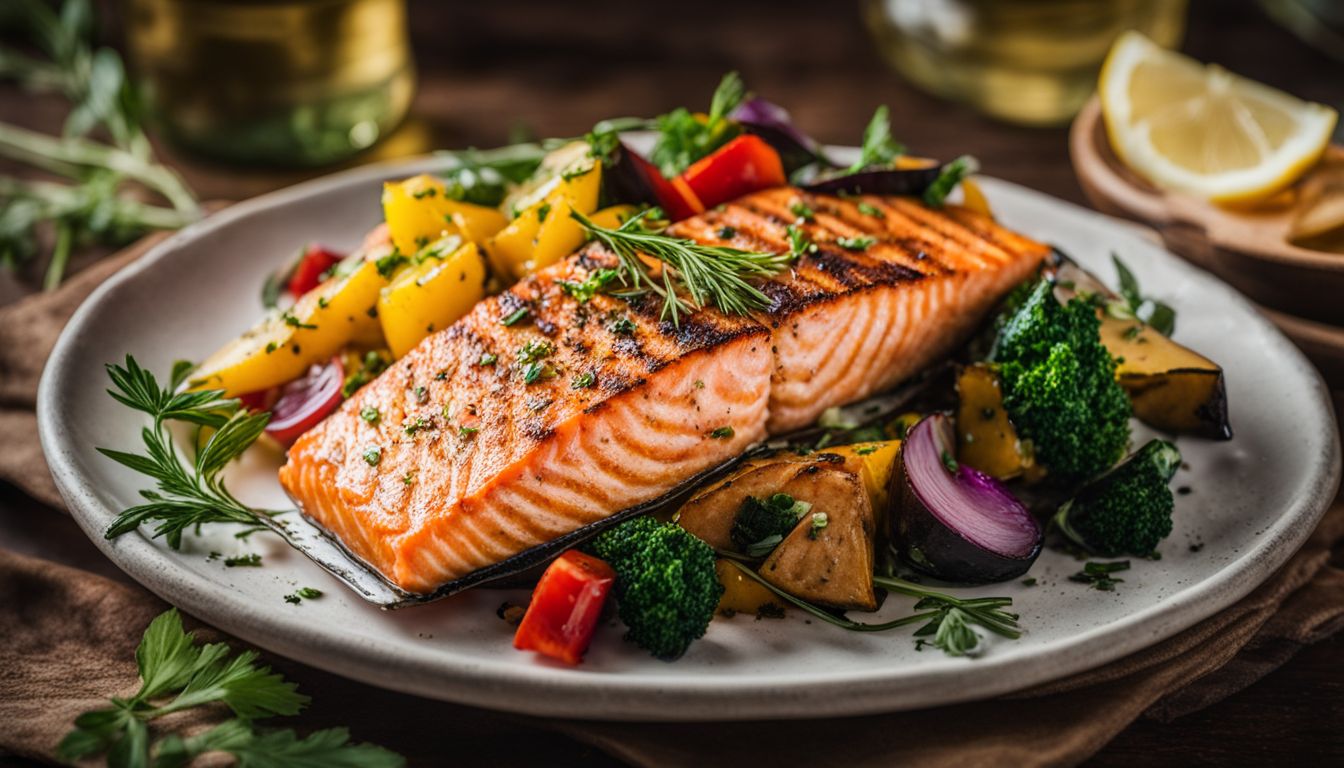
Salmon’s reputation as a powerhouse for omega-3 fatty acids is well-deserved. These essential nutrients provide numerous health benefits and are abundantly found in this flavorful fish.
A 3-ounce serving of raw salmon packs about 1.5 grams of omega-3s, contributing significantly towards the daily recommended intake.
Incorporating salmon into your diet not only helps fulfill omega-3 requirements but also promotes overall health. Studies suggest that regular consumption of such oily fish reduces risks associated with heart disease, supports brain function, and even aids weight management efforts.
This lean protein source proves that nutritious eating doesn’t have to compromise on taste.
Good source of B vitamins
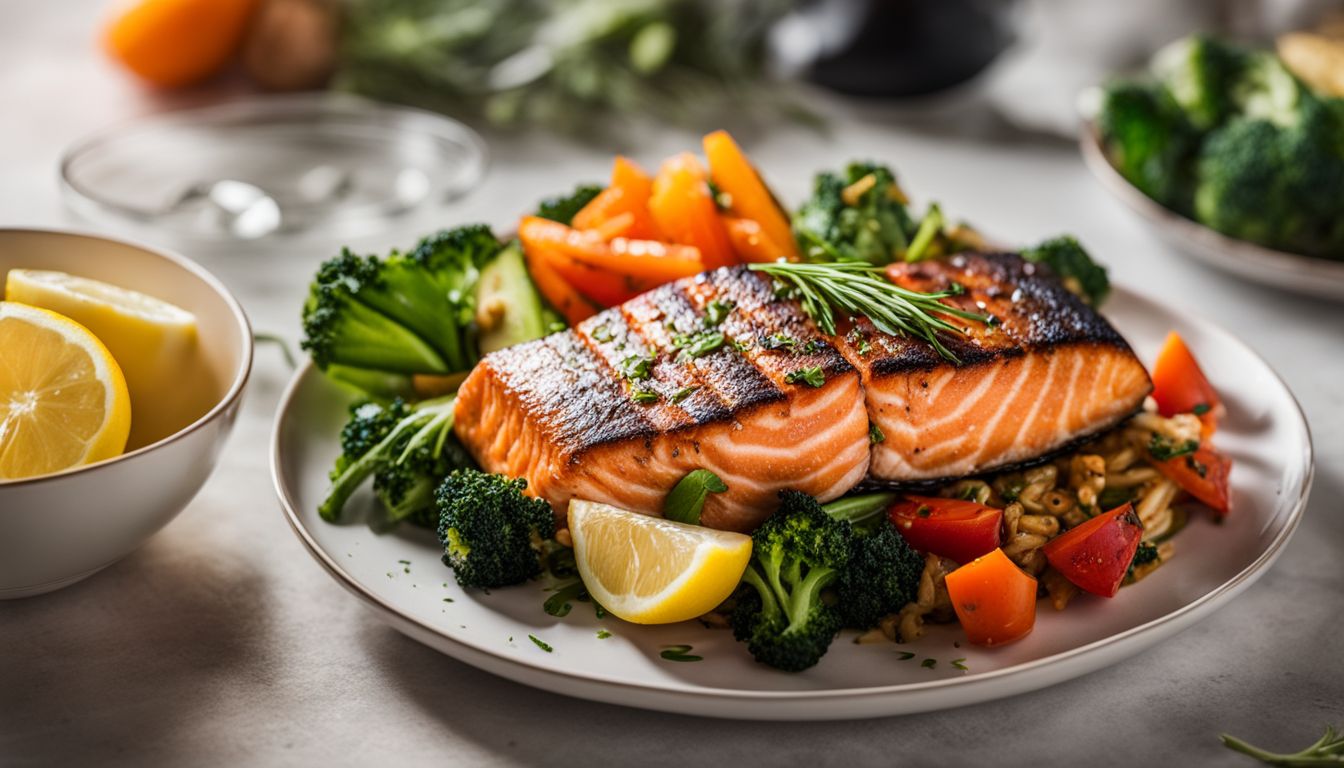
Salmon packs a potent punch of B vitamins, essential for multiple functions in our body. The vitamin B group supports energy production by helping convert food into usable energy. Thiamin or B1 fuels the brain and nerves; riboflavin or B2 plays a vital role in cell function and development; niacin or B3 aids digestion while pyridoxine or B6 supports immune system health.
Vitamin B12, also plentiful in salmon, is valuable for producing red blood cells and maintaining nerve cell health. Eating salmon regularly can help ensure you get a good amount of these necessary nutrients.
High in potassium
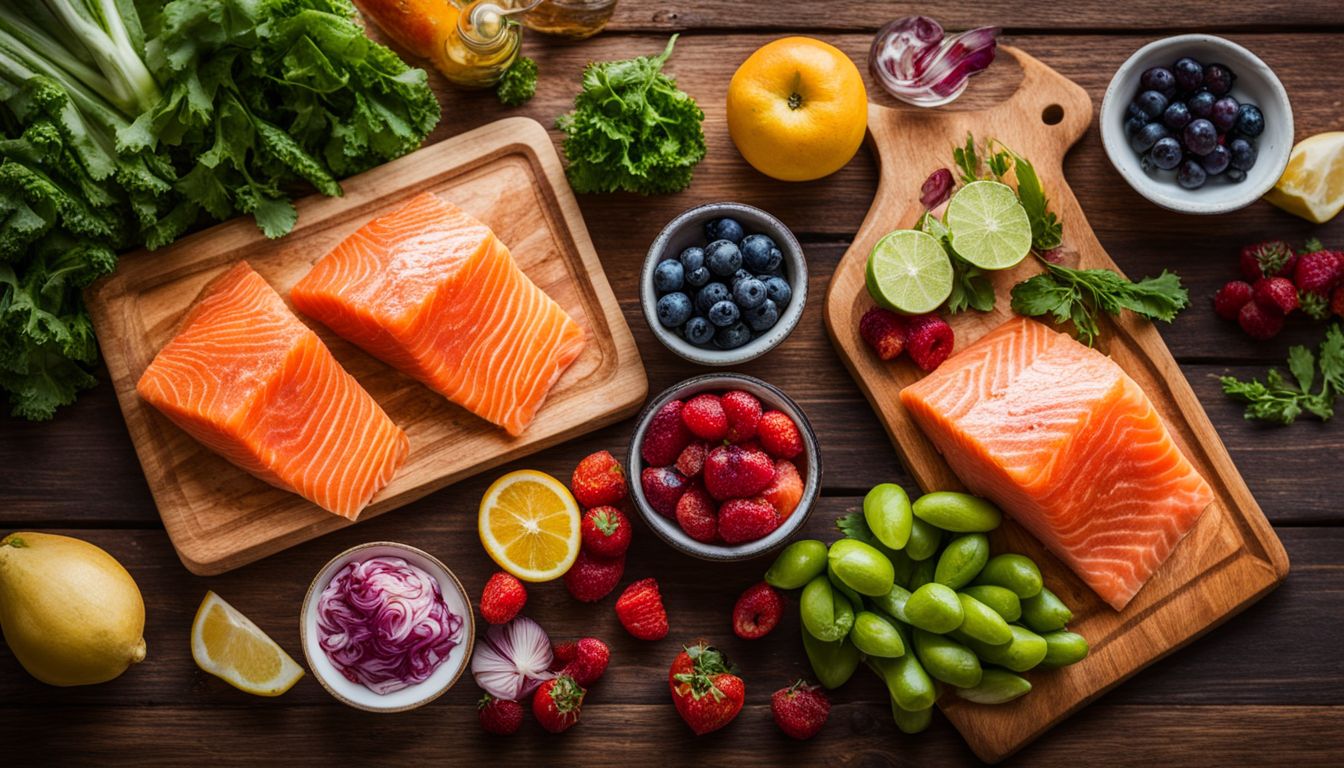
Salmon is also high in potassium, an essential mineral that plays a crucial role in maintaining healthy bodily functions. Potassium helps regulate blood pressure, supports proper muscle and nerve function, and promotes cardiovascular health.
A 3-ounce serving of salmon provides approximately 344 milligrams of potassium. Including salmon in your diet can help ensure you meet your daily potassium needs, which can contribute to overall well-being and optimal body functioning.
Contains selenium and astaxanthin
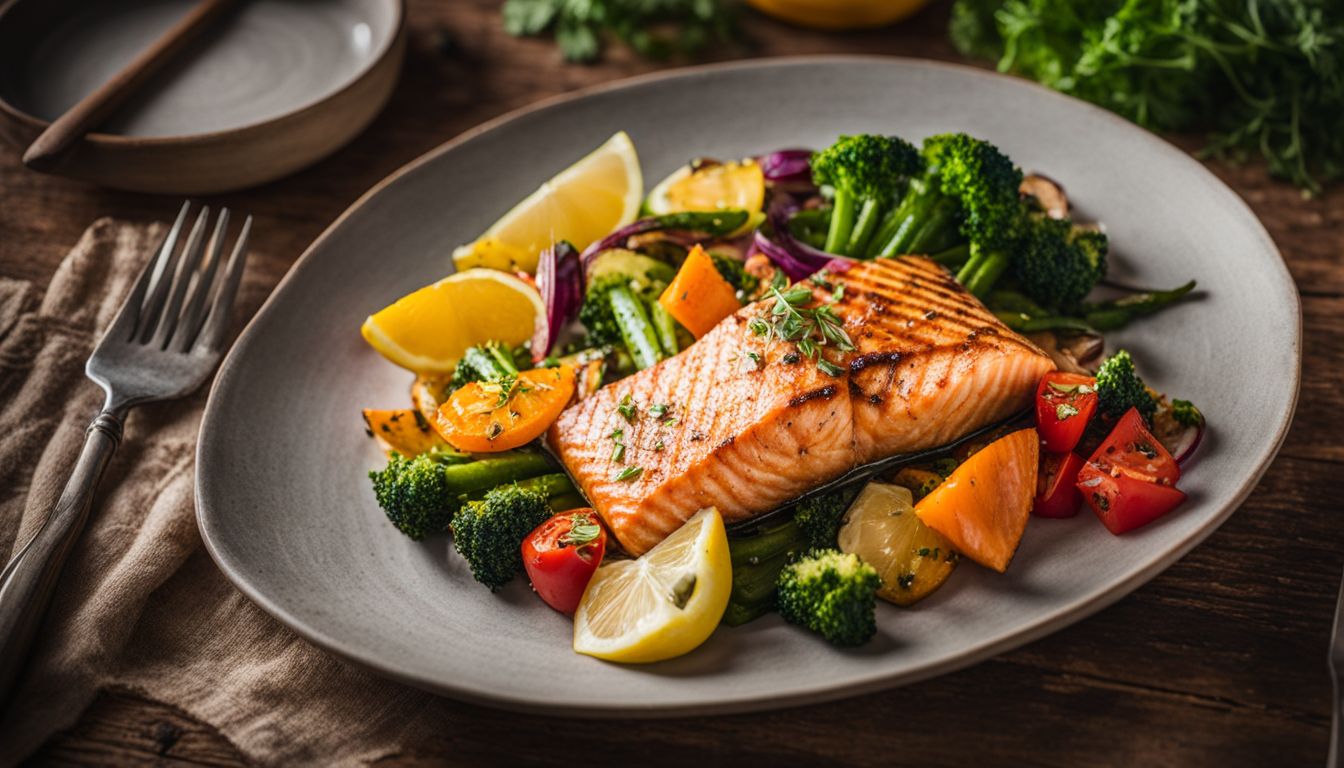
Salmon is not only a good source of protein and omega-3 fatty acids, but it also contains important minerals like selenium and astaxanthin. Selenium plays a crucial role in supporting immune function and protecting against oxidative stress.
Astaxanthin, on the other hand, is a powerful antioxidant that gives salmon its pink color and helps to reduce inflammation in the body. By incorporating salmon into your diet, you can enjoy these additional health benefits along with its other nutritional advantages.
Health Benefits of Salmon

Salmon may reduce the risk of heart disease, benefit weight management, prevent inflammation, protect brain health, improve mental health, and support bone health.
May reduce the risk of heart disease
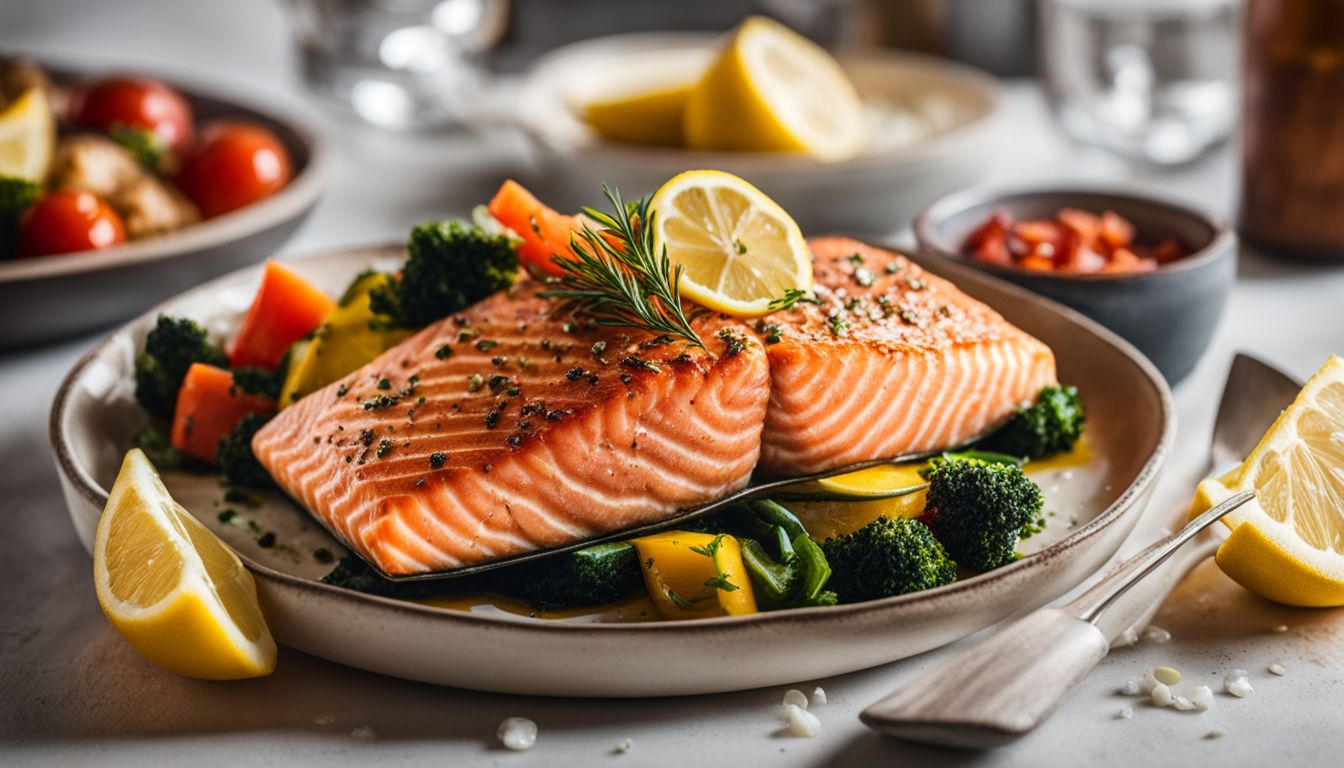
Salmon is often touted for its potential to reduce the risk of heart disease. This is because it is rich in omega-3 fatty acids, which have been shown to improve heart health by reducing inflammation, lowering blood pressure, and decreasing triglyceride levels.
In addition, salmon contains high levels of a specific omega-3 called DHA, which has been linked to improved brain function and a reduced risk of stroke. The consumption of salmon has also been associated with a lower likelihood of developing arrhythmias or abnormal heart rhythms.
Overall, incorporating salmon into your diet regularly can play a significant role in maintaining cardiovascular health.
May benefit weight management
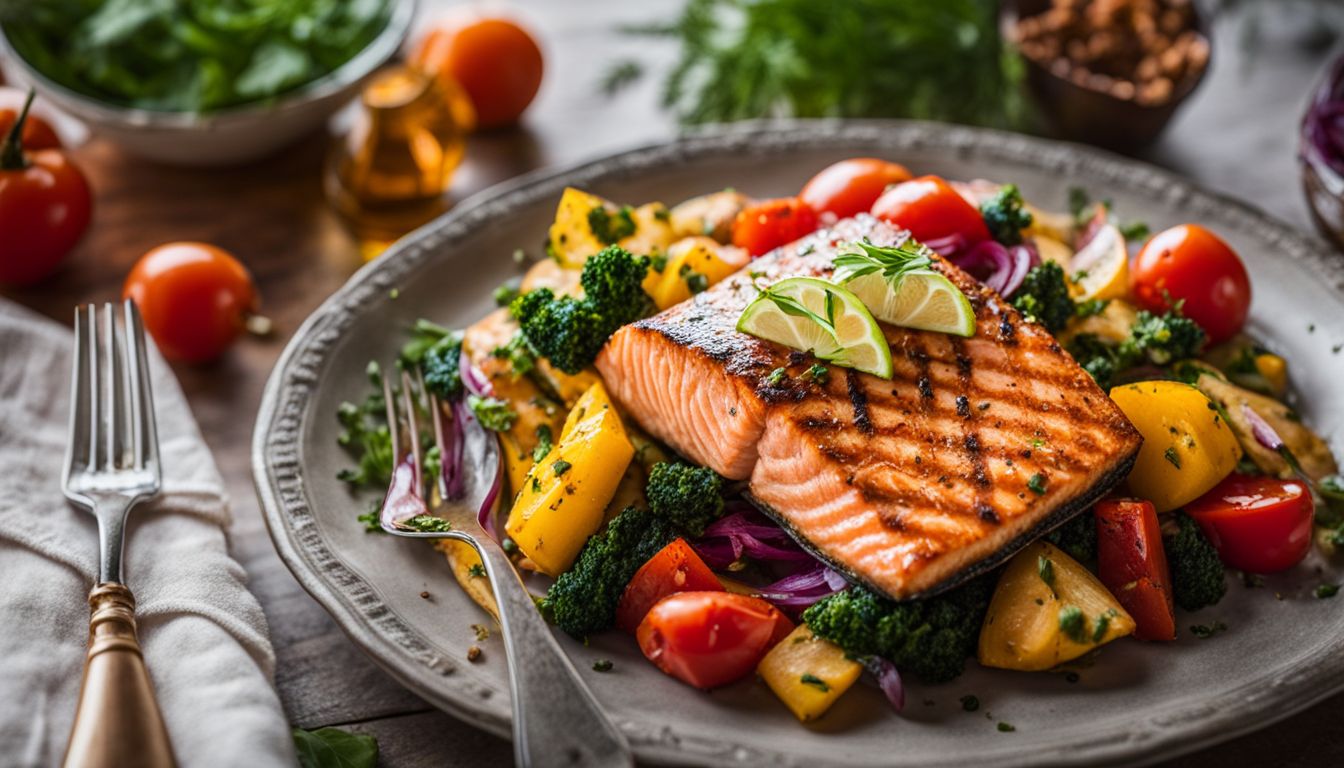
Salmon may benefit weight management due to its high protein content and beneficial omega-3 fatty acids. Protein is known to increase feelings of fullness, reduce appetite, and help regulate body weight.
Additionally, the omega-3 fatty acids found in salmon have been shown to promote fat loss while preserving muscle mass. Incorporating salmon into your diet can provide you with a satisfying and nutritious option that may support your weight management goals.
Can help prevent inflammation
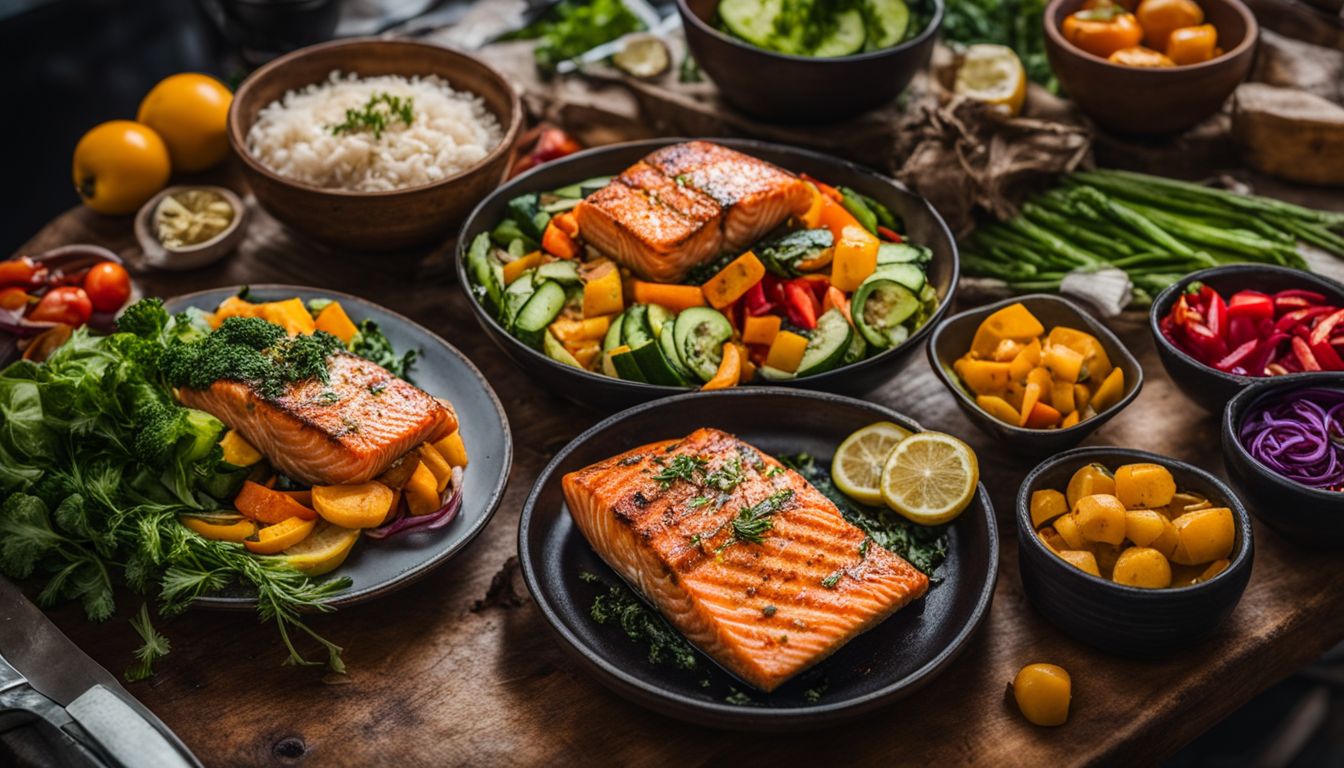
Salmon, with its rich omega-3 fatty acid content, can help prevent inflammation in the body. Omega-3 fatty acids have been shown to reduce the production of inflammatory compounds.
By incorporating salmon into your diet, you can potentially lower the risk of experiencing chronic inflammation, which has been linked to various health conditions such as heart disease and arthritis.
The anti-inflammatory properties of salmon may contribute to overall improved health and well-being.
May protect brain health
Salmon’s rich nutritional profile suggests that it may play a role in protecting brain health. This is primarily due to the omega-3 fatty acids found in salmon, such as EPA and DHA, which have been linked to improved cognitive function and a reduced risk of age-related mental decline.
Additionally, salmon is high in vitamin D and B12, both of which are essential for brain health. Vitamin D helps regulate mood and may reduce the risk of depression, while vitamin B12 supports nerve cell function and helps prevent neurological disorders.
So incorporating salmon into your diet could potentially benefit your brain health.
Might improve mental health
Consuming salmon might improve mental health. This is because salmon is rich in omega-3 fatty acids, which are essential for brain health and function. These fatty acids play a crucial role in maintaining the structure of brain cells and promoting communication between them.
In addition, the omega-3s found in salmon have been linked to a reduced risk of depression and improved mood. They may also help protect against cognitive decline and age-related memory loss.
Adding salmon to your diet can be a delicious way to support your mental well-being.
May support bone health
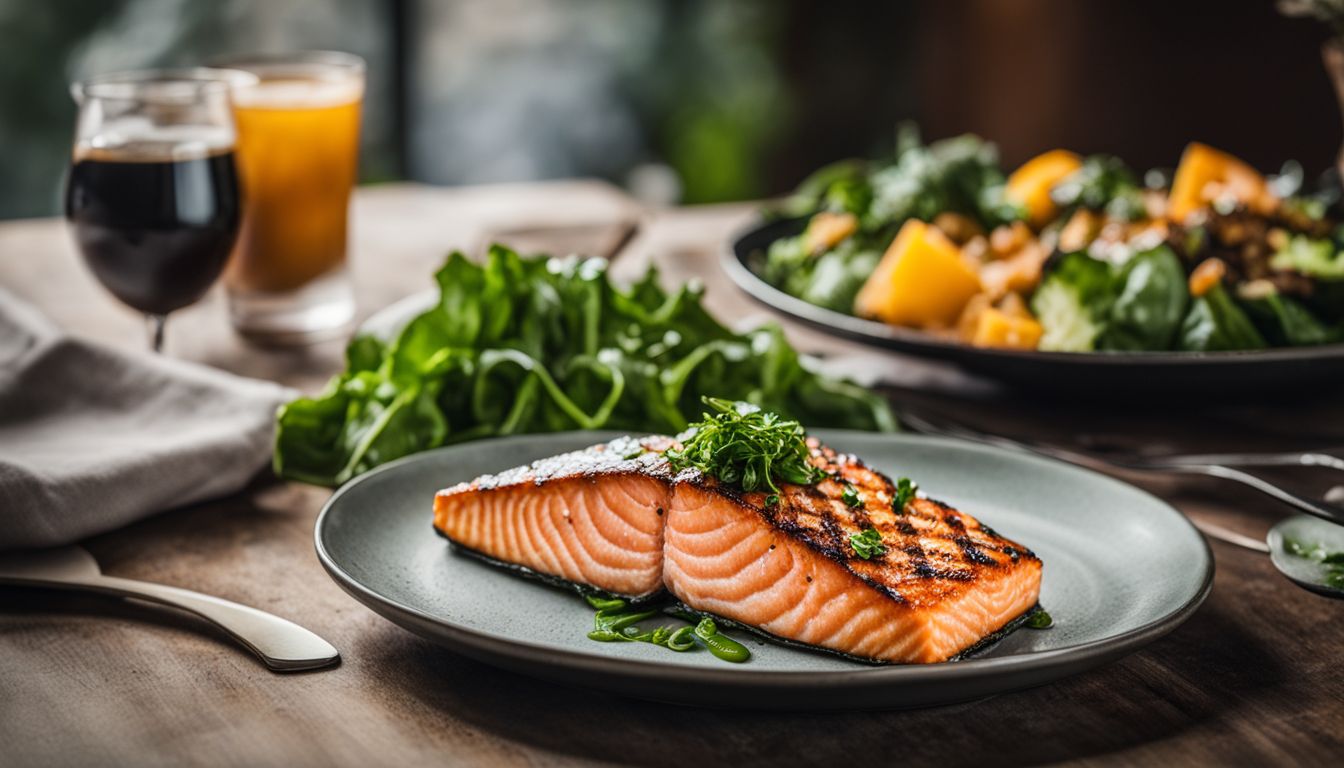
Salmon, known for its impressive nutritional profile, may also support bone health. This fish is a great source of vitamin D, which plays a crucial role in calcium absorption and bone strength.
Vitamin D deficiency can lead to weakened bones and an increased risk of fractures. Additionally, salmon contains omega-3 fatty acids that help reduce inflammation, which is beneficial for maintaining healthy bones.
Including salmon in your diet can contribute to optimal bone health and reduce the risk of conditions like osteoporosis.
Incorporating More Salmon into Your Diet

To incorporate more salmon into your diet, try experimenting with different cooking methods such as grilling, baking, or pan-searing. You can also find delicious and versatile recipes online that feature salmon as the main ingredient.
Additionally, be mindful of potential health risks associated with consuming too much mercury from certain types of salmon, especially for pregnant women and young children.
Tips for cooking salmon

Cooking salmon is a simple and delicious way to enjoy this nutritious fish. Here are some tips for preparing salmon:
- Season it well: Before cooking, season the salmon with your favorite herbs, spices, or marinades to add flavor.
- Choose the right cooking method: Salmon can be baked, grilled, broiled, or pan-fried. Experiment with different methods to find your preferred taste and texture.
- Use proper cooking temperatures: Cook salmon until it reaches an internal temperature of 145°F (63°C) to ensure it is cooked thoroughly and safe to eat.
- Don’t overcook: Overcooking can cause the salmon to become dry and lose its natural flavors. Aim for a tender and flaky texture by monitoring the cooking time carefully.
- Skin-on or skin-off: You can choose to cook salmon with or without the skin based on your preference. Leaving the skin on can help retain moisture during cooking.
- Add some citrus: Squeeze fresh lemon or lime juice over the cooked salmon to enhance its flavor and provide a burst of freshness.
- Serve with complementary ingredients: Pair your cooked salmon with sides like roasted vegetables, steamed rice, or a vibrant salad for a well-balanced meal.
Delicious and versatile recipes
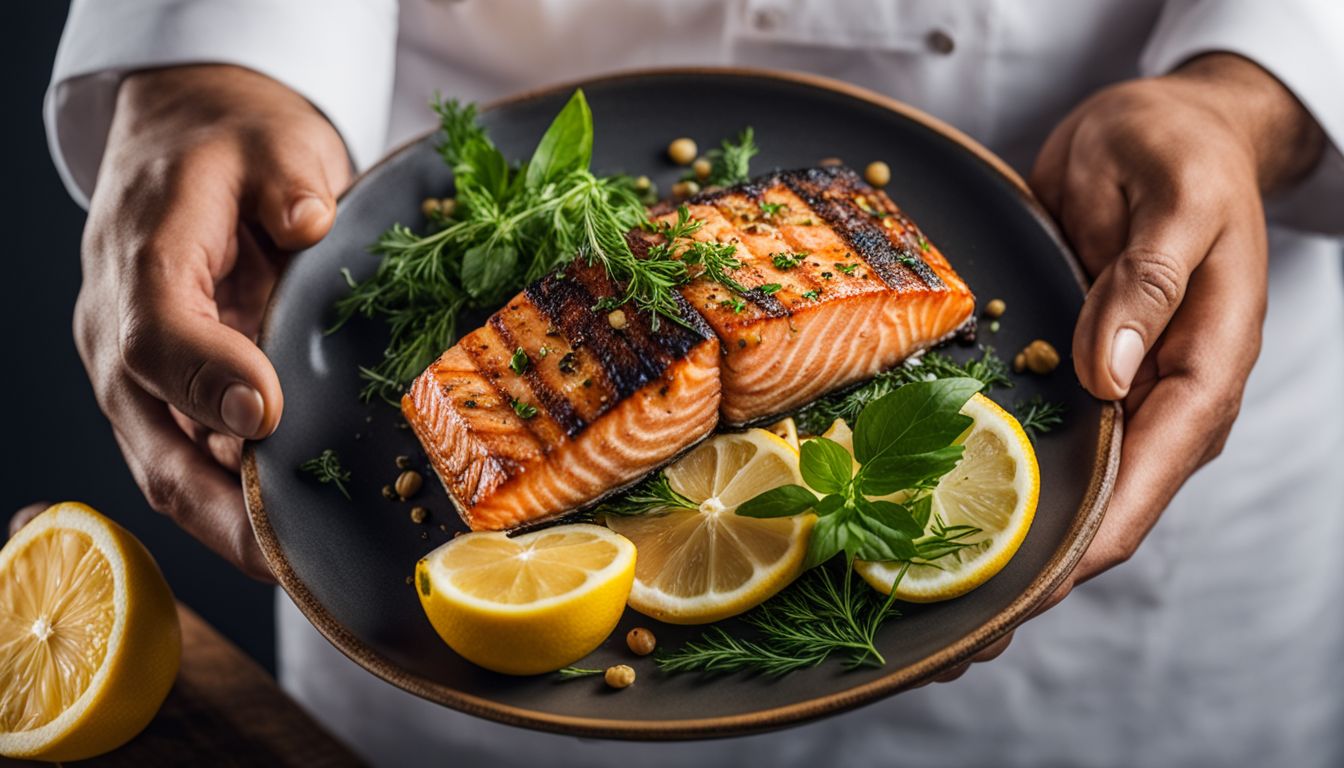
Discover delicious and versatile recipes to incorporate more salmon into your diet:
- Grilled Salmon with Lemon and Herbs: Marinate salmon fillets in a mixture of fresh lemon juice, minced garlic, and your favorite herbs. Grill until cooked through for a flavorful and healthy meal.
- Baked Salmon with Honey Mustard Glaze: Spread a mixture of honey, Dijon mustard, and minced garlic over salmon fillets. Bake in the oven until tender and glazed for a sweet and tangy twist.
- Salmon Tacos with Avocado Salsa: Cook salmon seasoned with spices like cumin and chili powder. Serve in corn tortillas topped with a zesty salsa made from ripe avocados, tomatoes, onions, lime juice, and cilantro.
- Salmon Salad with Greek Yogurt Dressing: Mix together cooked flaked salmon, crisp lettuce, cherry tomatoes, cucumber slices, red onion, and olives. Top it off with a creamy dressing made from Greek yogurt, lemon juice, garlic powder, and dill.
- Teriyaki Glazed Salmon Skewers: Thread chunks of marinated salmon onto skewers and grill or broil until caramelized. Brush on a homemade teriyaki glaze made from soy sauce, ginger, honey, and garlic during cooking for an irresistible flavor.
- Smoked Salmon Quiche: Create a savory quiche by combining smoked salmon with eggs, cream cheese, milk or cream, chopped green onions or chives, salt, pepper in a prebaked pie crust. Bake until set for an elegant brunch option.
Potential health risks to consider
Salmon is generally considered a healthy food choice, but there are some potential health risks to be aware of. One concern is the presence of mercury in certain types of salmon, particularly larger and older fish.
Mercury can accumulate in the body over time and may have adverse effects on neurological development, especially in unborn babies and young children. It’s important to choose wild-caught salmon or smaller species that tend to have lower levels of mercury.
Another factor to consider is the risk of bacterial contamination, such as with Salmonella or Listeria monocytogenes. These bacteria can cause foodborne illness if the salmon is not properly handled or cooked.
To minimize this risk, it’s essential to handle raw salmon with care, ensure proper cooking temperatures are reached (145°F for whole fish or 165°F for finfish fillets), and avoid cross-contamination with other foods.
Lastly, individuals who are allergic to seafood should exercise caution when consuming salmon or any other type of fish. Allergies can range from mild reactions like hives and itching to severe anaphylaxis, which requires immediate medical attention.
If you experience symptoms like difficulty breathing or swelling after eating salmon, seek medical help right away.
Conclusion
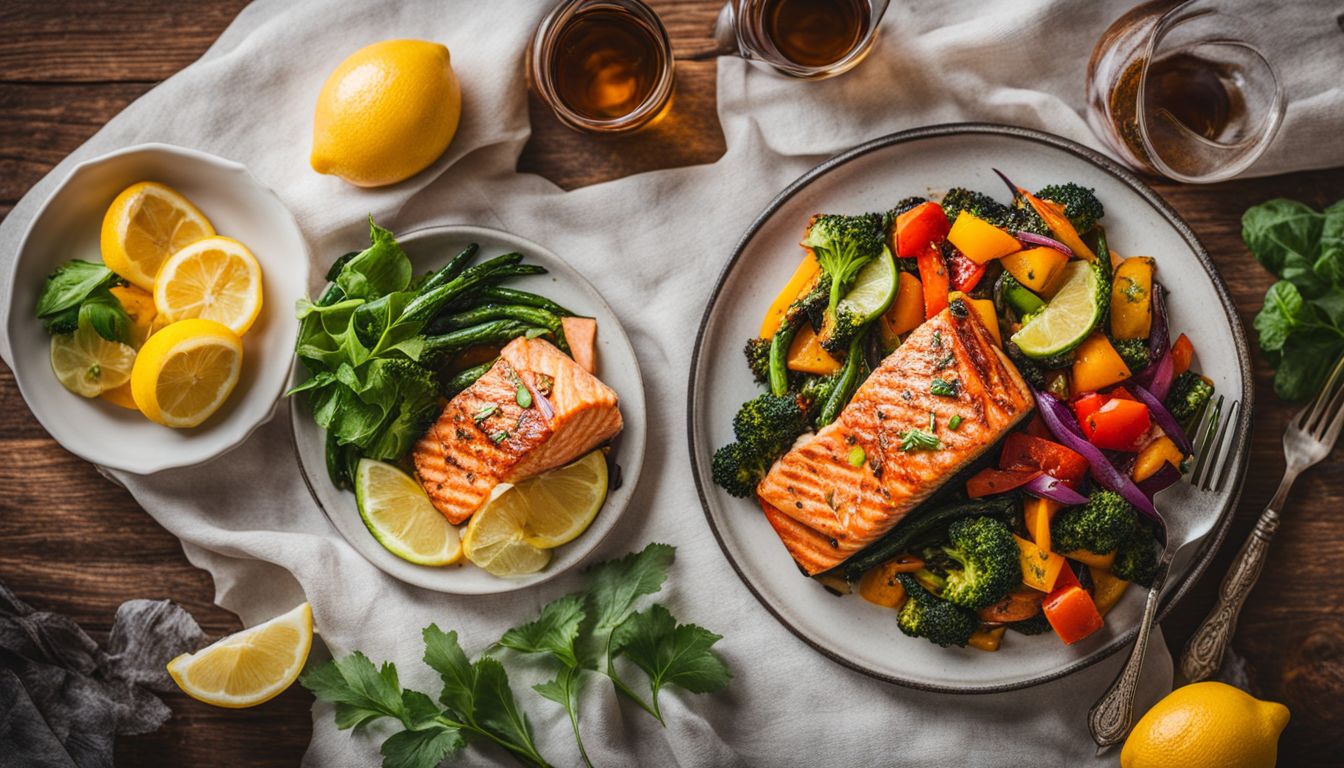
In conclusion, salmon is a nutritional powerhouse that offers numerous health benefits. With its high protein content, omega-3 fatty acids, and essential vitamins and minerals, including salmon in your diet can support heart health, brain function, weight management, and more.
So why not try incorporating this versatile fish into your meals to enjoy both its delicious taste and its many nutritional advantages?.
FAQs
1. What are the basic nutrition facts for salmon?
Salmon nutrition facts include high protein content, good calories, and other essential nutrients in varying amounts based on whether it’s raw, cooked, baked or grilled.
2. What’s the difference between wild-caught and farm-raised salmon?
Wild-caught salmon like king or sockeye salmon usually has fewer calories than farm-raised ones like Atlantic and Norwegian Salmon but both types offer similar protein levels.
3. How nutritious is canned salmon compared to fresh one?
Canned salmon maintains a lot of nutritional value such as proteins and calories just like fresh one. However, check the canned labels for additional ingredients which might alter its nutritional profile.
4. Does cooking method affect my 8 oz grilled or smoked salmon nutrition values?
Yes! A well-cooked 6 oz to 10oz piece can definitely have varied nutritional value depending on if it is baked, smoked or grilled due to different preparation techniques.
5. Are there different types of Salmons with distinct nutritional benefits?
Absolutely! Different species from Sockeye to Keta come with distinct nutrition profiles; some may have higher protein while others might stand out for their calorie count per ounce.
6. Is there anything special about faroe island and verlasso salmons’ diet?
Faroe Island Salmon and Verlasso Salmon are generally considered healthier options due to stringent protocols ensuring they’re fed high-quality diets that influence their unique nutritions.
Sources referenced in this article
- https://www.verywellfit.com/salmon-nutrition-facts-calories-and-health-benefits-4106641
- https://www.webmd.com/food-recipes/benefits-salmon
- https://www.medicalnewstoday.com/articles/307811
- https://www.goodhousekeeping.com/health/diet-nutrition/g4905/health-benefits-of-salmon/
- https://safebeat.org/cardiac/heart_health/12_health_benefits_of_salmon_for_the_heart_brain_and_much_more/
- https://www.eatingwell.com/article/8040993/is-salmon-good-for-you/
- https://www.bbcgoodfood.com/howto/guide/ingredient-focus-salmon

Author
Years ago, the spark of my life’s passion ignited in my mind the moment I stepped into the local gym for the first time. The inaugural bead of perspiration, the initial endeavor, the very first surge of endorphins, and a sense of pride that washed over me post-workout marked the beginning of my deep-seated interest in strength sports, fitness, and sports nutrition. This very curiosity blossomed rapidly into a profound fascination, propelling me to earn a Master’s degree in Physical Education from the Academy of Physical Education in Krakow, followed by a Sports Manager diploma from the Jagiellonian University. My journey of growth led me to gain more specialized qualifications, such as being a certified personal trainer with a focus on sports dietetics, a lifeguard, and an instructor for wellness and corrective gymnastics. Theoretical knowledge paired seamlessly with practical experience, reinforcing my belief that the transformation of individuals under my guidance was also a reflection of my personal growth. This belief holds true even today. Each day, I strive to push the boundaries and explore new realms. These realms gently elevate me to greater heights. The unique combination of passion for my field and the continuous quest for growth fuels my drive to break new ground.




